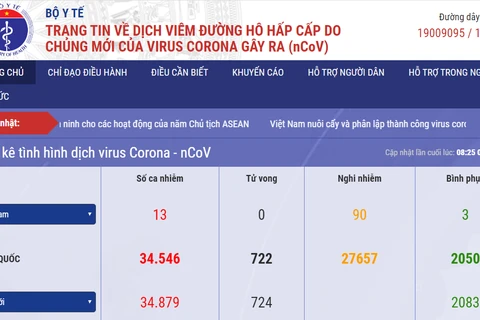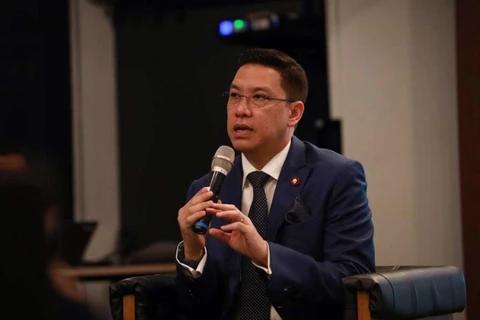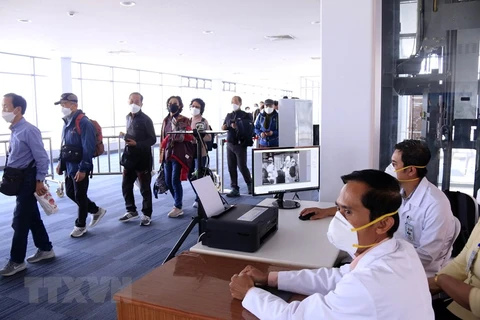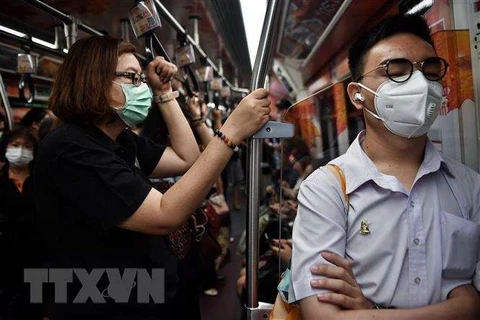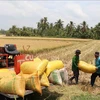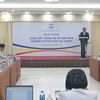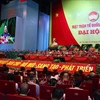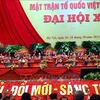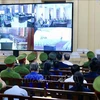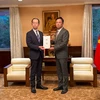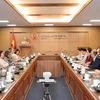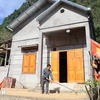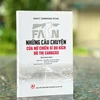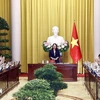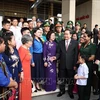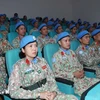Hanoi, (VNA) – The COVID-19 pandemic swept through the world like a tsunami in 2020, and along with it, a giant underwater wave named Fake News also came to the surface. In the fight against viral fake news, journalists are at the centre, with the task of countering misleading information.
Led by impulsive feelings
At 6:30am, the alarm goes off, and Nguyen Phuong Thao, a 24-year-old woman in Hanoi, wakes up. The first thing she does is to read the news on some mainstream newspapers on her smart phone, to get updated on the latest information on the COVID-19 in Vietnam and the world.
“I no longer felt anxious or obsessed by heaps of information, both true and untrue, about the coronavirus like before,” Thao said.
She recalled that she used to press like or share a lot of unchecked information. In mid-March, when many of her acquaintances shared on Facebook the news that Hanoi would be “isolated”, Thao did not pause to think but rushed to share the information in chat groups that she is a member.
In the following days, Thao lived in anxiety and tension with many presumptions about the epidemic. Only when the press published stories refuted the rumour, did she realize that she had been misled by fake news.
What to do when fake news get the upper hand?
Tran Ba Dung, head of the professional skills section of the Vietnam Journalists’ Association said while the news is fake, the consequence is real. The spread of untrue and ambiguous information at lightning speed after only one click causes negative effect on social psychology and public opinions.
In the current context of the COVID-19 epidemic, all information about infections and patients always receives special attention of the community.
“When facing the unpredictable development of epidemics, people will be afraid, which is a normal psychological response. But it is not the proper reason for us to hurriedly share unchecked information, because it will only cause anxiety and spiritual damage to the community,” Dung said.
Furthermore, the spreading of hoax information to attract more likes for personal purposes must be condemned.
In Hanoi alone, the police said they had handled 53 cases of circulating fake news in association with COVID-19 by March 18.
Amid the rampant misinformation about COVID-19 pandemic, Dung urged each individual to stay calm and not share unchecked information by impulsive feelings.
He highlighted the role of mainstream press and official information channels. According to the head of the professional skills section of the Vietnam Journalists’ Association, domestic media agencies have taken the initiative in covering the developments of COVID-19 outbreaks and the efforts of the entire political system to fight the epidemic. However, the media network should work harder to orient public opinions and counter misleading information.
On March 31, the Ministry of Information and Communication sent a document to People’s Committees of provinces and centrally-run cities urging intensifying management of communication work on COVID-19.
The document highlighted Vietnam’s initial success in curbing the spread of the pandemic and minimizing the damage, thus earning recognition of the World Health Organisation.
The ministry stressed that now that the COVID-19 fight has entered the third phase, which is of decisive significance, thus requiring drastic joint efforts of all-level authorities and branches. Therefore, the communication work must also be promoted.
Implementing the instruction of the Politburo, the Party Central Committee’s Secretariat, the Prime Minister and the National Steering Committee for COVID-19 Prevention and Control, the Ministry of Information and Communication asked the People’s Committees of provinces and centrally-run cities to continue promoting communication work on epidemic prevention and control. The People’s Committees should direct local media agencies to make timely and accurate coverage of the fight against the pandemic, with focus on positive results and good practices in community, in order to prevent anxiety in society.
The media is also required to publish more information about disease prevention measures, thus enhancing people’s awareness about how to protect themselves and the community./.



